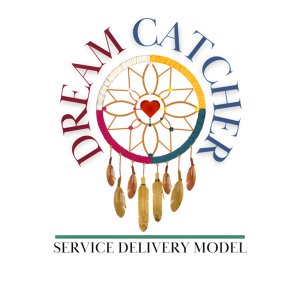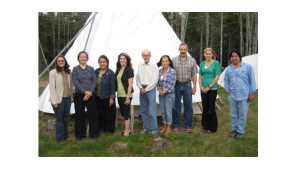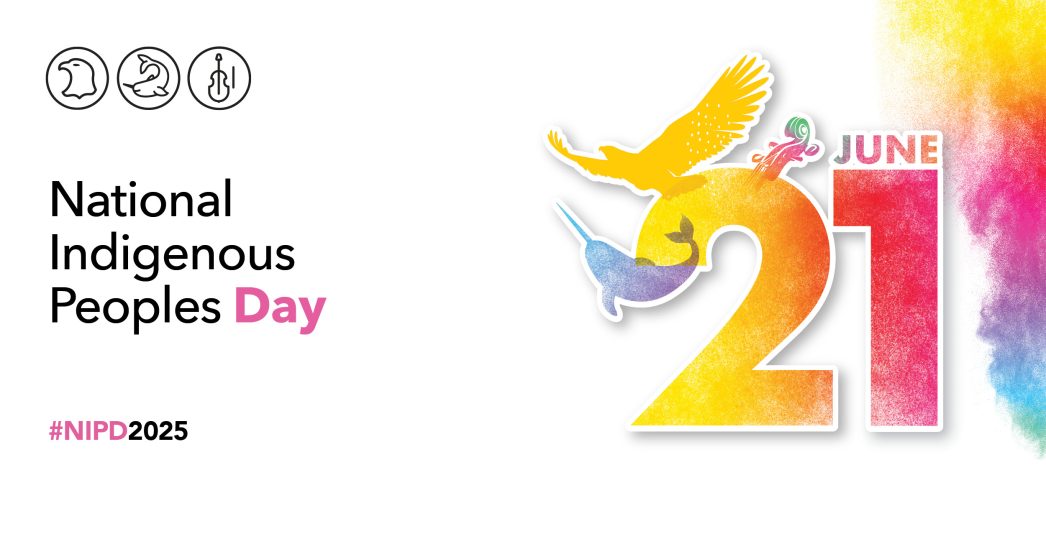Saturday was National Indigenous Peoples Day. We are proud to highlight three inspiring Indigenous-led initiatives. These initiatives are improving outcomes for those with Fetal Alcohol Spectrum Disorder (FASD) in New Brunswick and Manitoba. Through community-rooted support, these initiatives are improving outcomes and building stronger futures.
Indigenous communities have long celebrated their culture, heritage, and resilience during the summer solstice. This time marks the sun’s peak energy and spiritual significance. June 21, National Indigenous Peoples Day, honours First Nations, Inuit, and Métis cultures and traditions. It also celebrates their ongoing contributions in all areas, including health and wellness.
While we’ve made progress in reconciliation and support, there’s still a lot of work ahead. We must continue to listen, learn, and act with Indigenous communities for better outcomes.
As part of this celebration, we spoke with representatives from the Dream Catcher Service Delivery Model, the Eastern Door Centre and Manito Ikwe Kagiikwe – The Mothering Project. We asked them: How do you implement an Indigenous-led approach to supporting healthy pregnancies and/or individuals with FASD?.
Here’s what they shared:
Dream Catcher Service Delivery Model
 “The Dream Catcher Service Delivery Model (DCSDM), a core program within the New Brunswick FASD Centre of Excellence, integrates wraparound services to help support individuals and families impacted by FASD. From birth through adulthood, we provide comprehensive, culturally safe services that address all aspects of health and well-being. This includes prevention, diagnostic assessments, early intervention, FASD education, training, and transition services into adulthood. By embedding First Nations’ cultural values and community-driven care, we ensure that services are personalized, wholistic, and accessible. The DCSDM fosters resilience, healing, and lifelong success, empowering individuals with FASD to remain connected to their communities and achieve self-determined well-being.” – Annette Cormier
“The Dream Catcher Service Delivery Model (DCSDM), a core program within the New Brunswick FASD Centre of Excellence, integrates wraparound services to help support individuals and families impacted by FASD. From birth through adulthood, we provide comprehensive, culturally safe services that address all aspects of health and well-being. This includes prevention, diagnostic assessments, early intervention, FASD education, training, and transition services into adulthood. By embedding First Nations’ cultural values and community-driven care, we ensure that services are personalized, wholistic, and accessible. The DCSDM fosters resilience, healing, and lifelong success, empowering individuals with FASD to remain connected to their communities and achieve self-determined well-being.” – Annette Cormier
Eastern Door Centre

“At the Eastern Door, we use a Two-Eyed-Seeing (TES) approach to healing. TES is an Indigenous concept developed by Mi’kmaq Elders. Elders are included in all healing work. On our ED diagnostic team we include a traditional healer as well as a physician. We start our clinics with a prayer recognizing the spirit and gifts of the child. The Elder and family support workers as well as health professionals are there to explain the diagnosis to the family and youth and answer questions in the language of the community. We have also developed TES tools for diagnosis, intervention and prevention including prevention of generational FASD. These are available to download for free on our website.” – Lori Vitale Cox
Manito Ikwe Kagiikwe – The Mothering Project
“The Mothering Project is a community-based outreach program that works with new moms who are either pregnant or gave birth in the last year and struggle with substance use and Child and Family Services involvement in their family. Our spirit name is Manito Ikwe Kagiikwe which translates to Spirit Woman Teachings. We are an Indigenous led program whose clients are primarily Indigenous. As such we practice with a strong traditional component and honor traditional teachings and practices. The main way that we use an Indigenous led approach to support our mothers in healthy pregnancies as well as supporting our clients who have FASD is with the belief that all of our clients have the knowledge and wisdom that they need inside of them and know what is best for themselves. We believe in a client led approach. Our program uses a strengths-based approach to help our clients set goals based on their own beliefs and desires and support them in making action plans to achieve these goals.” – Hayley Thomas
Establishing a National FASD Indigenous Framework in Canada
Change is also happening at the national level. Dr. Melissa Tremblay, CanFASD’s Indigenous Advisor, is leading efforts to build a National FASD Indigenous Framework – designed to address gaps in Western health systems that have historically ignored Indigenous knowledge. This project brings together researchers, Indigenous partners, and people with lived experience to co-create a strengths-based, community-led framework for FASD assessment and support.
Inspired by a similar effort in Australia and supported by funding from the One Child Every Child initiative and the Yukon Government, the project is now gathering insights through clinic surveys, literature reviews, and advisory circles. One key priority of the project is ensuring the framework respects the diversity of Indigenous Nations while rejecting harmful stereotypes and generalizations. At its heart, the goal is to move forward together – with cultural safety, equity, and respect. You can read more about this framework in the Indigenous Relations section of our Annual Impact Report.
Following National Indigenous Peoples Day, we hope you take the opportunity to celebrate the contributions of Indigenous communities and partners; reflect on your own commitments and responsibilities; and continue to learn and grow.

